Coastaldigest.com has reached a milestone with its successful three-year-long camping to connect coastal Karnataka directly with Kingdom of Saudi Arabia. Now Air India Express is all set to launch its maiden direct flight to Dammam from Mangalore on April 3. Following this announcement, as a gesture of gratitude, we decided to meet some of the Mangaloreans in Eastern Province of the Kingdom, who had worked for this cause since beginning.
We cannot forget the effort of West Coast NRI Forum, which came into existence in 2005 with a sole purpose of connecting Mangalore directly with Saudi Arabia.
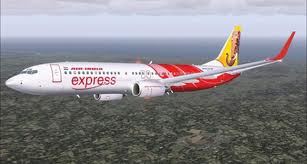 According to Farooq Shahbandri, the Founding President of the Forum, it was Mangaloreans in Saudi Arabia, who nurtured the idea of direct flight to their homeland, when Mangalore Airport was not even a customs airport. In fact, the Forum had pursued the matter of upgrading the then domestic airport to customs airport right from the initial days.
According to Farooq Shahbandri, the Founding President of the Forum, it was Mangaloreans in Saudi Arabia, who nurtured the idea of direct flight to their homeland, when Mangalore Airport was not even a customs airport. In fact, the Forum had pursued the matter of upgrading the then domestic airport to customs airport right from the initial days.
“When members of the Forum initially discussed the matter with M R Vasudeva, the then director of Mangalore Airport, the latter welcomed the idea and said that the issue should be pursued seriously in order to felicitate international flights to land at the table-top airport. Following this, the Forum had collected signatures of around 3,000 direct flight aspirants along with passport numbers and telephone numbers, before submitting a memorandum to authorities concerned,” recalled the Mr Shahbandri.
Vishwanath Kamath, who had accompanied Mr. Shahbandri in many of the meetings in those days, lauds the efforts of Mr. Shahbandri and his team at the initial stage. However, when Mangalore Airport started accommodating international flights and United Arab Emirates was directly connected to the port city of Mangalore, the due credit was not given to them and a few people hijacked the entire issue for their gains.
Mohammed Ali, the coordinator of the Forum shows the communication and follow up made by their team to achieve the upgrade of Mangalore Airport and to commence direct flight operation between Mangalore and Gulf nations.
Earlier, in 2009 too, AIE had proposed a schedule for Mangalore-Dammam direct flight, but, later it was discarded due to the lobbying of some vested interests. Things were slowed down from there onwards and the catastrophic Mangalore air crash, which claimed 158 lives on board in 2010, made things more difficult. However, Coastaldigest.com appreciates the efforts of the Forum, at the initial stage.
Coastaldigest.com representative met West Coast NRI Forum office-bearers at a restaurant in Al-Jubail to collect the feedback and their messages following the new development.
Farooq Shahbandri, Vishwanath Kamath, Mohammed Ali, Farooq Portpolio,Narayana Bhat, Shivaram and Habibuddin shaikh from Tandoori Night were present at the meeting. Their messages on this occasion are as follows.
Farooq Shahbandri
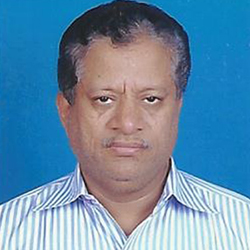
Farooq Shahbandri, President of West Coast NRI Forum Jubail is a senior businessman in the coastal industrial city of Saudi Arabia hails from Coastal city of Bhatkal, Karnataka. He is undoubtedly a visionary in promoting Indian culture and business potential in the kingdom. He has teamed up with like-minded coastal Karnataka NRI’s towards understanding and resolving the plight of working class expats in the region for whom reaching home town is a costly and a time consuming affair. He ran from pillar to post just to realize his one point program- arranging a direct flight from Dammam –Mangalore-Dammam. His dream of Bajpe airport acquiring international status has become a reality.
Message
Finally, the dream which we dreamt in 2005 has seen the light of the day. This was not an easy task because it involved lot of running around here, in Bangalore as well as in Delhi. We thank everyone involved in the fruition of our dream especially Udupi-Chikmagalur MP Jayaprakash Hegde, Veerappa Moily, Deshpande, Oscar Fernadez, Raj Sequiera and Mohammed Asif of Coastaldigest news portal for their dedicated efforts.
I still remember our slogan, which impressed the press during our press conferences, both in Mangalore and Bangalore. It read- "Kerala, the tiny state has three International airport and is trying to get fourth at Cananur. Pity our politicians of Karnataka, the state having the mightiest mineral resource and thick forests without having a single International Airport" at that time in 2005.
We, the West coast NRI Forum, who initiated this issue in an interview of ours in this regard, which was aired in July 2005 in different local news channels throughout the day. This created a wish in million minds of landing directly in Mangalore.
I am grateful to my colleagues in the forum; Vishwanth Kamath, Narayan Bhat, Shabir Honnala, Zakerya Bajpe, Mohammed Ali, Jaleel Ekkeri, Farooq and others who stood with us throughout this struggle right from the start. Lastly I thank all those who are eagerly waiting for the moment of landing directly on our Mangalore soil on the 4th of April, 2013.
Vishwanath Kamath Markad
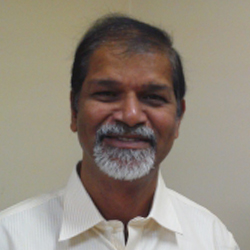
Vishwanath Kamath Markad, a senior executive with SABIC hails from Mangalore. He has dedicated himself for promoting the aspirations of Kannadigas in the region by leading Kannada Sangha, Jubail. Due to his inbuilt leadership qualities, he has successfully built a friendly relation with the expats. He joined the West Coast NRI Forum as Organizing Secretary. With his appreciable communicating and organizing skills, he supports the community in all their local and domestic issues. He can rightly be called the architect in achieving the major long-standing demand of direct flight to and from Mangalore.
Message
I am highly delighted with the commencement of AIR INDIA EXPRESS, our proud National carrier, to start Dammam-Mangalore-Dammam bi-weekly flight operations, which is a long awaited dream of millions of West coast expatriates(Coastal Karnataka), who are well known for their humbleness , patience and perseverance . Thanks to the consistent efforts of West Coast NRI Forum, Jubail and all those who have directly or indirectly supported the noble cause and made it happen, enhancing the overall benefit and development of expats in eastern province as well as business/cultural /educational avenues between India and Kingdom of Saudi Arabia. “
I thank Coastaldigest.com team for supporting the cause of the Forum, with your timely intervention through media that lead to the commencement of the flight operations finally.
Narayan Bhat
Narayan Bhat is long serving Kanandiga in SABIC Affiliate steel industry hailing from Puttur, Karnataka. His constant persuasive attitude and timely follow up with concerned authorities contributed towards success of the forum’s objective.
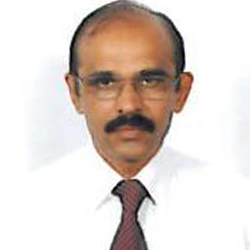
Message
Coastaldigest.com and West Coast NRI Forum have shown to the world that team work always leads to success. It will be a memorable moment for me, when I travel by the direct flight from Dammam to Mangalore because it is my dream since year 2005.
Mohammed Ali
Mohammed Ali is a popular Kannadiga hailing from Uppinangady. He is the founder treasurer and coordinator of the Forum. His persistent association with the Forum team and patience till achievement of goal is laudable by entire community in Jubail.

Message
With the grace of god, the long standing demand has finally been met. I sincerely thank every person who has toiled for this. May Allah bless us all.
Zakaria Jokatte
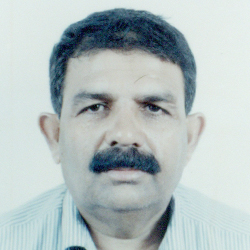
Zakaria Jokatte, also known as Bajpe Zakaria, hailing from Mangalore, is one of the prominent Kannadiga businessmen in Eastern Province of Saudi Arabia. He as vice-president of NRI forum fostered spirit of entire community towards dream of direct flight from Dammam to Mangalore and his role as team member is appreciated by every person from coastal Karnataka living in the Kingdom.
Message
This is a victory for the prolonged struggle of Mangaloreans in Eastern Province of Saudi Arabia. On this occasion, I congratulate all who struggle for Mangalore-Dammam flight since many years. I whole-heartedly appreciate the efforts of Coataldigest.com.
Mohammed Farook
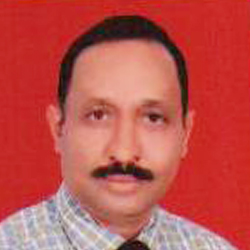
Mohammed Farook, a long serving travel specialist in the city of Jubail hails from Kanyana (Bantwal Taluk. D.K.). He is a team player with lots of perseverance and dynamism guiding entire West Coast NRI Forum team in all its deliberations. He is the current president of Jam’iyyatul Falah Jubail Unit.
Message
Congratulation for achieving the dream of costal Karnataka expatriates living in Saudi Arabia. New services of Air India Express flight between Mangalore-Dammam is a great move. We are thankful to MP K Jayaprakash Hegde, Mohammed Asif, Air India Express Chief Operating Officer Ansbert D'souza, M R Vasudeva former Director of Mangalore international Airport, West cost NRI Forum Saudi Arabia and each and every one who worked to make this dream a reality.
We are also very thankful to Coastaldigest.com team for their support.
Richard Rodrigues

Richard Rodrigues a leading businessman in Jubail hailing from Brahmavar, Karnataka. His proactive nature has been a motivation for the entire Forum.
Message
An idea of hassle free travel from Dammam to Mangalore was envisaged five years ago; Today we have come to realise this dream. For this, I would like to thank Air India Express and all concerned people who worked persistently and stayed motivated for such a long time. I am sure that this decision is being well received by all the Indian expats from the Mangalore region, and will become a huge success in no time.





Comments
Add new comment